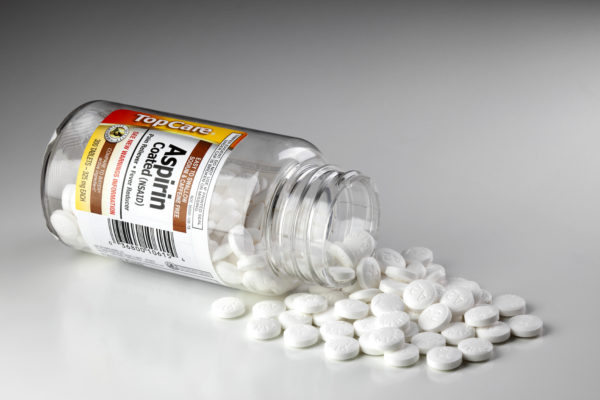
Editor’s Note: This dispatch from ACC.21 was written by Alexandra Pipilas, MD, a cardiology fellow at Boston Medical Center. Dr. Pipilas is also a correspondent with CardioNerds (@CardioNerds), a DocWire News partner. Follow Dr. Pipilas on Twitter (@apipilasMD).
WASHINGTON– Sacubitril-valsartan started soon after acute myocardial infarction (AMI) in patients with concomitant left ventricular (LV) systolic dysfunction did not reduce cardiovascular (CV) mortality or the risk of developing heart failure (HF) when compared to angiotensin-converting enzyme inhibitor (ACEi) ramipril, according to the PARADISE-MI study presented at the American College of Cardiology Annual Scientific Sessions (ACC.21).
The rationale for the trial was based on data1,2 from the 1990s which demonstrated benefit of ACEi in AMI and more recent data3 which showed incremental benefit of sacubitril-valsartan over ACEi in patients with chronic systolic HF.
Marc Pfeffer, MD, from Brigham and Women’s Hospital, and colleagues found that among 5,661 high-risk patients presenting with AMI complicated by LV dysfunction (EF <40%) in those without evidence of prior HF, sacubitril-valsartan did not reduce the risk of CV death, HF hospitalization or outpatient development of HF when compared to ramipril over a follow up period of 23 months in this multi-national double-blinded, randomized, event driven, active controlled trial. Most patients were Caucasian men in their 60s randomized 0.5 to 7 days following an AMI with an average LV ejection fraction of 36%. Patients largely presented with STEMI and underwent percutaneous coronary intervention (PCI). Many patients had been taking betablockers, statins and antihypertensives prior to randomization.
Summary from #PARADISEMI #ACC21
💥does ARNI (sacubitril valsartan) have better outcomes than ACEi post AMI?
🎊 No difference seen
NEGATIVE TRIAL
Safety seen
Question is: Would you use it???@ACCinTouch @tygluckman @PamelaBMorris @EugeniaGianos @cardioPCImom @CardioNerds https://t.co/gamgxTqN9M pic.twitter.com/epvgO5en41— Dr. Martha Gulati ♥️🫀❤️🩹🇨🇦 (@DrMarthaGulati) May 15, 2021
Though only hypothesis-generating considering an overall negative primary outcome, the exploratory prespecified secondary analysis showed fewer total and recurrent events, as well as suggestion of increased benefit in patients over 65 and in those who underwent PCI with sacubitril-valsartan. Notably, there was no significant difference in serious adverse events, suggesting safety and tolerability of sacubitril-valsartan in the acute post-MI period.
Dr. Pfeffer noted in a concluding slide that the event rate in the trial was significantly lower when compared to initial trials in the 1990s, likely due to improved medial therapy and the advent of PCI. He added that as the event rates continue to fall, finding medications with significant incremental benefit will continue to prove more and more difficult.
Ultimately, this trial supports the safety and feasibility for the use of sacubitril-valsartan in this high-risk population. In the future, data surrounding LV remodeling, biomarker changes and additional subgroup analysis to identify whether a particular subgroup of patients in the acute post-MI setting may benefit from sacubitril-valsartan will be invaluable. For now, the increased cost with uncertain benefit is likely to leave most clinicians sticking to ACEi.
One of the impressive #AHA2021 slides from today comes from Dr. Marc Pfeffer PARADISE-MI LBCT: "In the last 15-20 years we have had a dramatic improvement in AMI mortality rates, now 1/3 of where we were 2 decades ago, because of use of evidence based medicines." pic.twitter.com/iisdlAjJam
— Ron Blankstein (@RonBlankstein) May 16, 2021
References
- Pfeffer MA, Braunwald E, Moyé LA, et al. Effect of captopril on mortality and morbidity in patients with left ventricular dysfunction after myocardial infarction. Results of the survival and ventricular enlargement trial. N Engl J Med. 1992;327(10):669-77.
- Kober L, Torp-Pedersen C, Carlsen JE, et al. A clinical trial of the angiotensinconverting-enzyme inhibitor trandolapril in patients with left ventricular dysfunction after myocardial infarction. Trandolapril Cardiac Evaluation (TRACE) Study Group. N Engl J Med. 1995;333:1670-76.
- McMurray J, Packer M, Akshay S, Desai A, et al. Angiotensin–neprilysin inhibition versus enalapril. N Engl J Med. 2014;371(11):993-1004.







 © 2025 Mashup Media, LLC, a Formedics Property. All Rights Reserved.
© 2025 Mashup Media, LLC, a Formedics Property. All Rights Reserved.